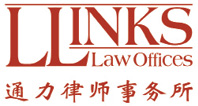Since the State Council officially approved the Overall Plan for the China (Shanghai) Pilot Free Trade Zone (FTZ) on 27 September 2013, a number of innovative policies for offshore investment have been published for the Shanghai Free Trade Zone. These include the Measures Governing the Filing of Offshore Investment Projects in the China (Shanghai) Pilot Free Trade Zone and the Measures Governing the Filing of Offshore Investment by Enterprises in the China (Shanghai) Pilot Free Trade Zone (collectively, FTZ measures).

Partner
Llinks Law Offices
As a result, regulations relating to offshore investment at a national level are being updated. After the National Development and Reform Commission (NDRC) promulgated the Measures Governing the Approval and Filing of Offshore Investment on 8 April 2014, the Ministry of Commerce (MOFCOM) published the new Measures Governing Offshore Investment (new measures) on 6 September, which have substantially revised the previous relevant rules.
The new measures are consistent with the FTZ measures in many ways, and are better in some respects. In the context of the new measures, does offshore investment by enterprises in the FTZ still offer more advantages than offshore investment made outside the zone?
MOFCOM’s new measures
Superiority of existing FTZ measures. Prior to the publication of the new measures, enterprises outside the FTZ were still governed by MOFCOM’s 2009 Measures Governing Offshore Investment, under which a prior approval regime was adopted for overseas investment by enterprises. For projects involving a particular nation, region, industry or quota, the set-up of offshore special purpose vehicles (SPVs), and the interests of a number of countries, the authorities were required to consult with the embassies or consulates of the foreign country for their comments. Approval of these projects could take up to six weeks.

Associate
Llinks Law Offices
Following the new measures, however, these procedures appear to have been streamlined. The approval regime is retained, but the scope of its application has been reduced to cover only those projects involving a particular country, region or industry, as well as the establishment of offshore SPVs and interests in a number of countries or regions.
Quota restrictions were removed, and a filing system was adopted for offshore investment projects that fall beyond the scope of approval in the FTZ. Under this system, enterprises are required to submit compliance documents for review within five working days, and, if approved, they will receive a Certificate for Offshore Investment by Enterprises for carrying out the offshore investment. The exception is for those cases where filing is not possible. Procedures within the FTZ are more convenient than those outside of the FTZ.
Amendments to the new measures. The new measures have introduced substantial revisions to the procedures, which are even more innovative than the FTZ measures. Under the new measures, the scope of the approval has been significantly reduced by removing quota restrictions and the need to establish offshore SPVs. They only regulate the approval of projects involving sensitive countries, industries and regions, as well as projects that may impact the interests of a number of countries or regions. The time needed for approval of these projects has been cut to 20 working days, accordingly.
The new measures place emphasis on the filing procedures, supplemented by approval formalities. A filing system is introduced for offshore investment projects beyond the scope of approval.
As long as there are no circumstances that render an enterprise unable to make a filing, the enterprise is simply required to submit a prescribed offshore investment filing form and a copy of its business licence. It may then receive a Certificate of Offshore Investment by Enterprises within three working days. Compared with the FTZ measures, the filing procedures and time limitations are far less onerous.
FTZ’s superiority
More efficient, with closer convergence between departments. While the new measures no longer require approval or filing by other departments, offshore investment projects by enterprises outside the FTZ may still be subject to filing or approval by the NDRC. The NDRC’s various requirements for quotas on offshore investment, submission of documents and assessment of specific situations will inevitably affect the efficiency of approving or filing offshore investment project applications by enterprises.
In comparison, two different sets of rules govern the FTZ, according to the actual situation. However, companies seeking offshore investment can successfully complete formalities within five working days, as long as they fully comply with the legal requirements. It is relatively efficient because of the adoption of a model that centralises the acceptance of applications and the issuance of certificates.
Relevant supporting policies must adapt to the changes. The new measures have been published, but supporting policies are still not clear. Supporting rules should be introduced as soon as possible to truly implement the procedures on a unified basis. Alternatively, the procedures should be streamlined to avoid companies outside the FTZ still being required to obtain approval, or filing from a number of departments. As a result of such a lengthy approval and filing process, there is a risk that companies may miss the opportunity to make overseas investment and enter M&A projects.
In comparison, the FTZ has already handled some cases that saw far shorter approval or filing times, indicating that the various supporting measures for the FTZ measures are operating well.
Forex formalities are more convenient. On 28 February 2014, the Shanghai Branch of the State Administration of Foreign Exchange issued the Implementing Rules for the Support of Imposing Foreign Exchange Control in the China (Shanghai) Pilot Free Trade Zone. These rules have broadened the channel for handling the registration of direct investment in foreign currency by delegating to banks the power of registering enterprises’ offshore investments in foreign currencies, making it more convenient for enterprises to carry out offshore investments.
The FTZ has played an active role in leading the way in China with this experimental model, in order to accelerate economic development and reform, as well as strengthen international free trade. With the introduction of the new measures, the superiority of the policy for enabling enterprises in the FTZ to file offshore investment projects is diminishing. However, since the FTZ is at the forefront of these relatively innovative policies, its superior position as an offshore investment platform through the introduction of various innovative policies remains a key focus.
上海市银城中路68号时代金融中心19楼
邮编: 200120
19/F, ONE LUJIAZUI, 68 Yin Cheng Road Middle
Shanghai 200120, China
电话 Tel: +86 21 3135 8666
传真 Fax: +86 21 3135 8600
电子信箱 E-mail:
david.yu@llinkslaw.com
kevin.huang@llinkslaw.com
www.llinkslaw.com






















